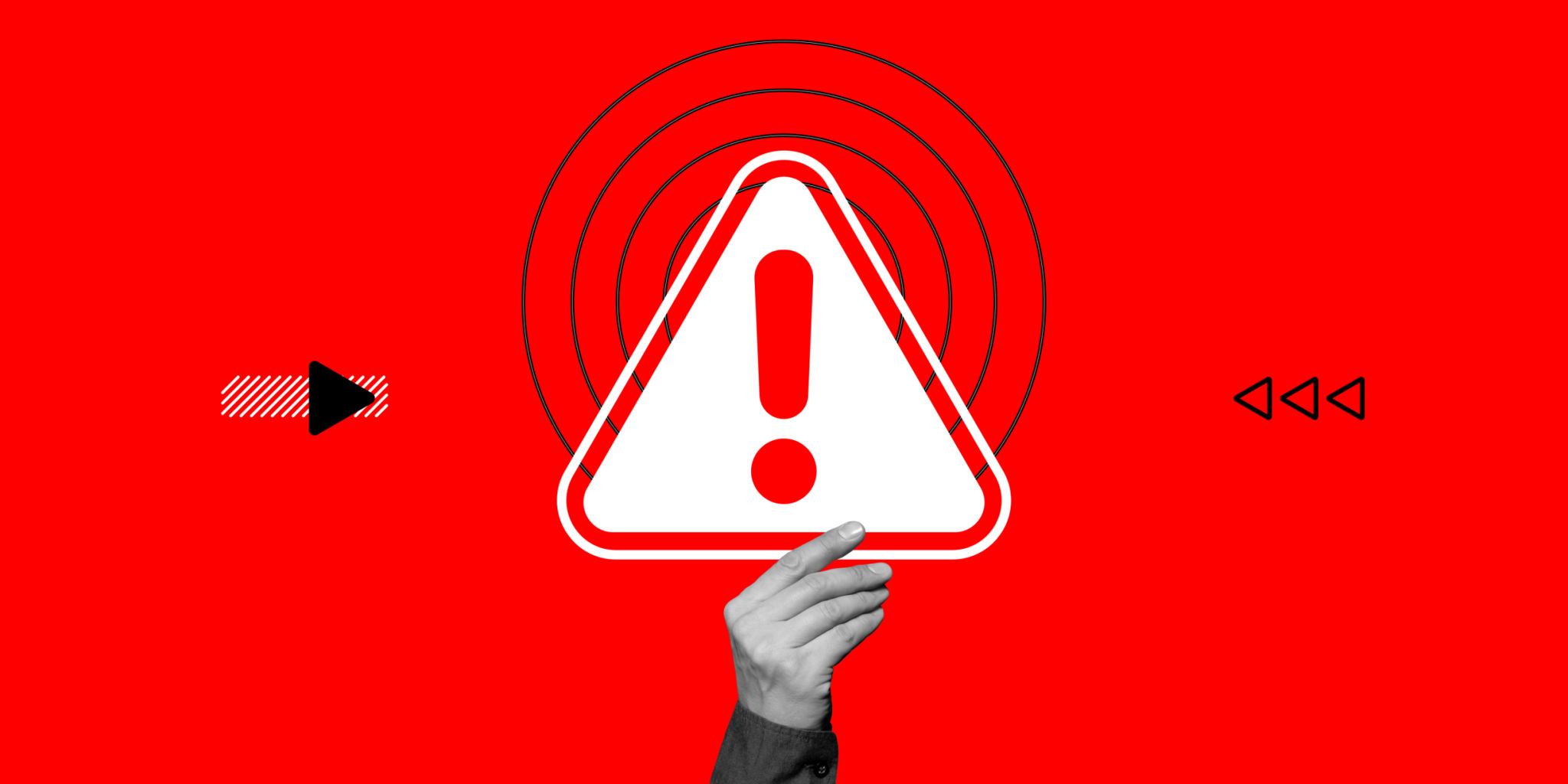Warning Signs Ahead: 5 Red Flags Your Books Are in Serious Trouble
Running a business is exciting. You’ve got sales rolling in, new clients signing up, and ideas bouncing around like popcorn in a microwave. But while you're busy chasing growth, there's one area that can quietly turn into a total disaster if left unchecked: your books.
That’s right—your bookkeeping might be trying to send you SOS signals, but they’re easy to miss when you're focused on the bigger picture.

In this post, we’re diving into five major red flags that scream, “Your books are in trouble!” Whether you’re a solo entrepreneur managing QuickBooks on your lunch break or a small business owner working with an overwhelmed admin, these warning signs are worth paying attention to—before they blow up into bigger issues.
Let’s break them down.
1. Your Bank and Credit Card Statements Don’t Match Your Books
Red Flag #1: Your bank account says one thing, but your books say another.
This is one of the biggest indicators that something is off. If your bank and credit card balances don’t match what's in your accounting software, it usually means:
- Transactions are missing
- Transactions are duplicated
- Errors were made while entering data
- Reconciliations haven't been done properly (or at all)
Why it matters:
Your books are only as accurate as the data in them. If they don’t match real-life balances, you can’t trust the numbers you're seeing. That throws off your reporting, tax filings, budgeting, and cash flow decisions.
What to do:
Make sure you're doing monthly bank reconciliations—not just glancing at your accounts and thinking, “Looks about right.” Use reconciliation tools in QuickBooks Online or your preferred software, and follow up on any discrepancies right away.
2. You Have No Idea What Your Receivables or Payables Are
Red Flag #2: You don’t know who owes you money—or who you owe.
When a client asks, “How much do I still owe you?” and your response is, “Umm, let me check and get back to you…”—that’s a sign something’s broken.
If your Accounts Receivable (AR) or Accounts Payable (AP) reports are missing, outdated, or full of questionable figures, you're flying blind. This is especially dangerous for cash flow and long-term financial planning.
Why it matters:
You could be leaving money on the table by forgetting to follow up on unpaid invoices. Or worse, you could double-pay a vendor—or miss a payment and damage your reputation.
What to do:
Keep your AR and AP reports updated weekly. Use automation tools to send invoice reminders, and always log bills the moment they come in—even if you’re not paying them right away. Staying on top of these reports helps keep cash flow predictable.

3. You’re Guessing at Tax Time (or Filing Late)
Red Flag #3: Tax season makes you sweat—and not in a good way.
Let’s be honest: tax time is no one’s favourite season. But it shouldn’t feel like a total panic-fest. If you find yourself scrambling to pull receipts, manually calculating income, or guessing your deductions, that’s a clear signal your bookkeeping isn’t working.
And if you’re filing late or missing deadlines, expect penalties, interest, or worse—a red flag from the CRA.
Why it matters:
Clean books make for smooth tax filings. Guesswork leads to overpaying or underreporting, both of which can cost you.
What to do:
Use tax-ready bookkeeping software (like QBO) and categorize income and expenses consistently throughout the year. A good bookkeeper will also ensure your GST/HST is tracked and filed correctly, avoiding nasty surprises in April or at year-end.
4. Your Reports Make No Sense (or You Don’t Run Them at All)
Red Flag #4: Your P&L and Balance Sheet are either confusing—or missing altogether.
If you avoid your Profit and Loss (P&L) statement like a horror movie, you're not alone. Many business owners feel overwhelmed by financial reports. But here’s the thing—your reports are there to help you understand your business’s story. If they’re missing, inaccurate, or totally indecipherable, you’re making decisions in the dark.
Why it matters:
You can’t manage what you can’t measure. Without accurate reports, you’re likely overspending, underpricing, or investing in the wrong areas.
What to do:
Get familiar with the basics. Run a monthly P&L, Balance Sheet, and Cash Flow Statement. If something looks weird—like negative equity or revenue spikes that don’t match reality—investigate. Don’t just assume it’s fine. And if you’re stuck? A professional bookkeeper can help interpret the data and clean up the mess.

5. Your Books Are Always “Behind”
Red Flag #5: You're always playing catch-up.
“I’ll update my books next week…”
“I’ll sort those receipts when I get a minute…”
“I’ll reconcile the bank account after this launch…”
Sound familiar?
If your bookkeeping is always behind, you’re setting yourself up for unnecessary stress. Not only does it snowball into a huge time-suck, but it also means your decisions are based on old or incomplete data.
Why it matters:
Old data leads to delayed insights, which leads to poor decisions. Whether it’s pricing a new service, applying for financing, or knowing when to hire—it all depends on current financial information.
What to do:
Build bookkeeping into your routine—weekly if you’re DIY-ing, or monthly at minimum. If you can’t keep up, outsource it. A bookkeeper will keep you on track and ensure your data is fresh, accurate, and useful.
Bonus Red Flag: Your Gut Says Something’s Off
Sometimes, you don’t need a report to tell you something’s wrong. If you’ve got a sneaky feeling that things aren’t quite adding up—trust it.
- You’re not sure where your money is going.
- You feel like you’re working hard but have nothing to show for it.
- You’re anxious every time someone mentions “books” or “taxes”.
Listen to that instinct. It’s often the first sign that something behind the scenes needs a closer look.

What Happens If You Ignore These Red Flags?
Let’s keep it real—ignoring your books doesn’t make the problems go away. It just makes the eventual cleanup more painful (and expensive).
Here’s what you risk by letting your books stay in chaos:
- Penalties and audits from the CRA
- Missed tax deductions that could’ve saved you thousands
- Bad business decisions based on inaccurate data
- Cash flow problems that catch you off guard
- Investor or lender rejections due to untrustworthy financials
- Lost sleep and constant stress

So, What’s the Fix?
If you spotted yourself in one (or more) of these red flags, don’t panic. It doesn’t mean you’re bad at business—it means you’re busy. And you’re definitely not alone.
Here’s how to course-correct:
- Do a financial check-up. Take a few hours to review your bank accounts, credit cards, invoicing, and reports. Note any major inconsistencies or gaps.
- Catch up on reconciliations. Even if it means blocking off a Saturday afternoon with snacks and coffee—just do it.
- Clean up your chart of accounts. A messy chart leads to confusing reports. Use clear, logical categories.
- Document a routine. Whether it’s 15 minutes each Friday or 1 hour every Monday, make bookkeeping part of your business rhythm.
- Call in help. If you’re overwhelmed or unsure where to start, a bookkeeper can sort things fast—and save you money in the long run.

Final Thoughts: Your Books Deserve Attention
Your bookkeeping isn’t just a tax-season necessity—it’s a real-time roadmap to running a successful business. Think of it like your car’s dashboard: if you ignore warning lights long enough, something’s going to break down.
Don’t wait until year-end panic mode to take action. If your books are waving red flags, now is the time to fix it. Your future self (and your accountant) will thank you.
Need help getting your books back on track?
At Fiscal Sense, we specialize in helping small business owners ditch the chaos and get back to doing what they love. We offer virtual, tax-ready bookkeeping, clean-ups, and monthly support—without the judgment. 💻📊
Let’s make your books your business superpower.
📅 Book a free discovery call here
📩 Or email us at [email protected]
